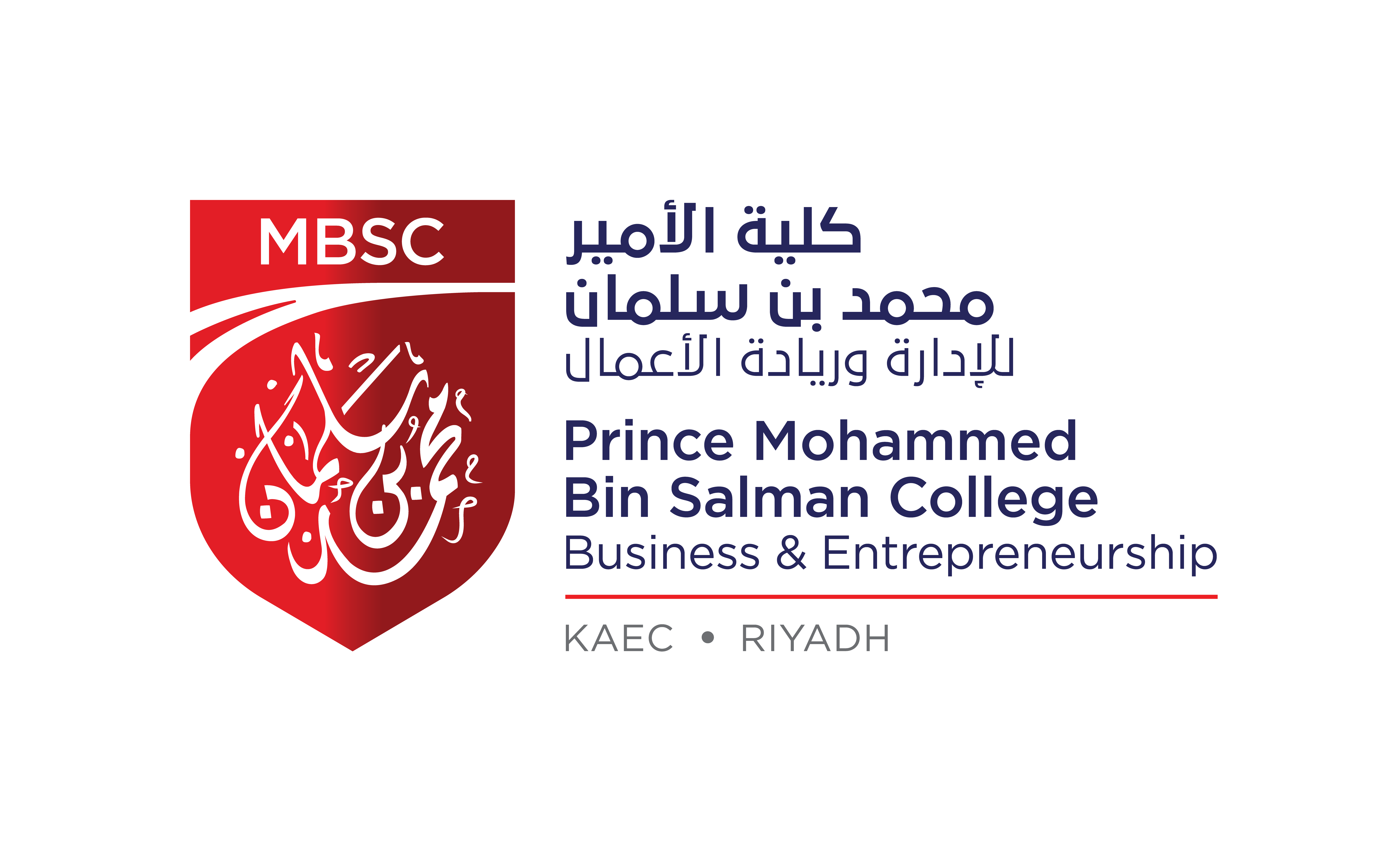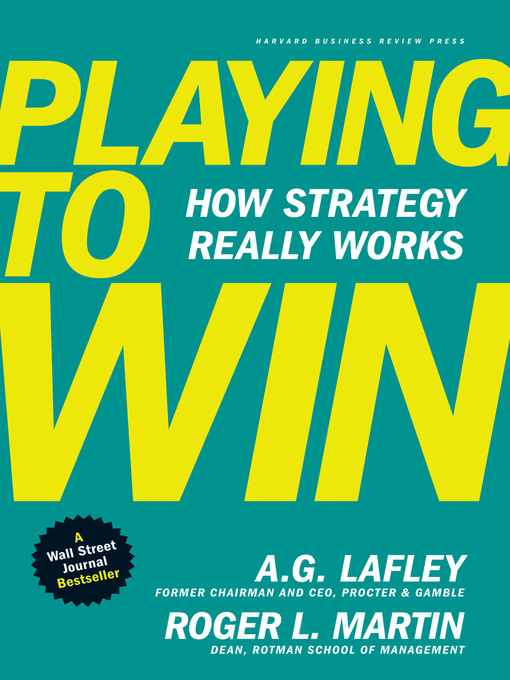Reserves
Business Law & KSA Legal Environment
This course introduces students to the prevalent legal systems implemented around the world and how those systems compare with the legal system in the Kingdom of Saudi Arabia. Students learn general laws as they pertain to business with a focus on dispute resolution, selection of corporate form and formation, contract formation, intellectual property, and employment matters. This course will also provide the students with an overview of the foreign investment environment in Saudi Arabia for entrepreneurs as well as established businesses. This course will emphasize legal matters that are important for the students and their practical application in a business environment.
Global Connections through Technology
A combination of digital disruption and a turbulent global economy has focused attention on the need to build future-ready organisations. Innovative, forward-looking and forwardthinking organisations fit-for-purpose in a VUCAD world (Volatile, Uncertain, Complex, Ambiguous and Digital).
Innovation for Sustainable and Social Impact
Global challenges of social inequality and climate change, as described in the UN's Sustainable Development Goals, urgently call for products or services that sustainably offer value. There is increasingly a call to draw on innovation to address the grand challenges of sustainable development, social justice and inclusive growth. This course is designed to equip you with the skills and resources for thinking critically about the role of innovation in sustainable development and social justice. It provides a conceptual understanding of various perspectives of emerging models of innovation such as sustainable, social, frugal, reverse, grassroots, and inclusive innovation, and of the practical challenges of managing these approaches. We exemplify these approaches by reviewing case examples of how large companies, social enterprises and public sector organizations are designing and implementing new ways to improve social and environmental conditions. We use toolkits to evaluate the viability of innovative approaches and solutions that address the challenges faced by society, organisations and indeed the planet. Finally, we will assess to what extent these approaches can help grow your organization to be successful economically while also benefiting society and the planet.
-
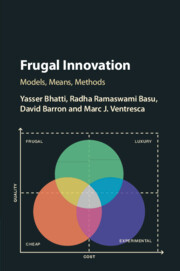
Frugal Innovation ; Models, Means, Methods (ISBN: 9781316986783)
-

Innovation and Entrepreneurship, 3rd Edition (ISBN: 9781119088752)
-
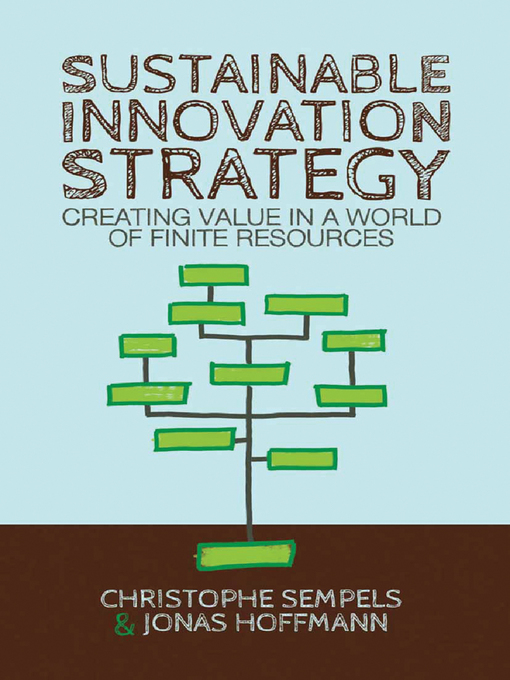
Sustainable Innovation Strategy: Creating Value in a World of Finite Resources (ISBN: 9781137352613)
-

Entrepreneurship, Innovation and Sustainability (ISBN: 9781351277747)
-
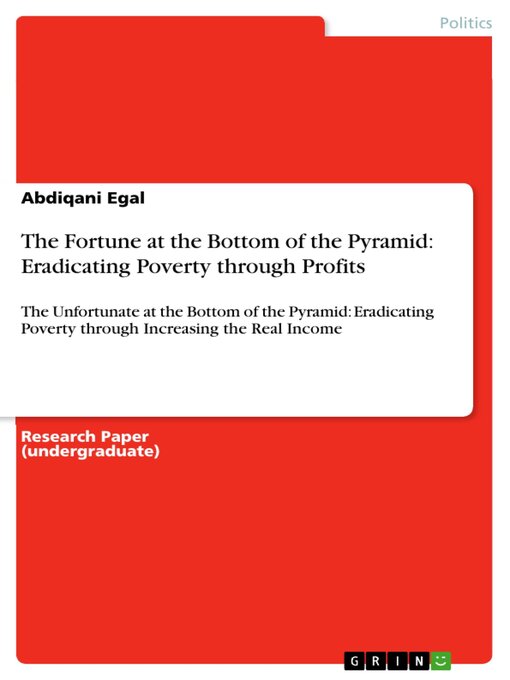
-
Grassroots Innovation Movements: Pathways to Sustainability (ISBN: 9781317451181)
-
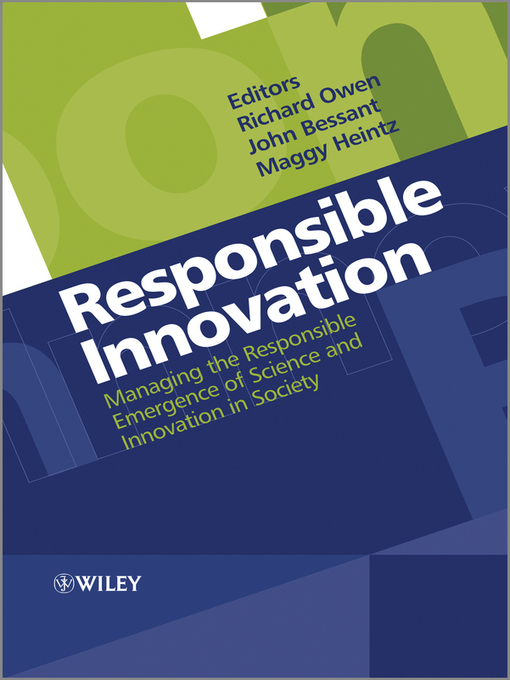
Integrated Marketing Communications
Integrated Marketing Communications – IMC requires marketing specialists to have a broad knowledge of how this field is properly used to ensure effective brand communications with target segment(s). Therefore, this course will examine the wide range interconnections of Above The Line (ATL), Below The Line (BTL) and Through The Line (TTL) marketing communication platforms to serve consistent business objectives. These will include advertising and advertising management, sponsorship in marketing, experiential marketing (i.e., events), digital, and sales promotion. Moreover, communicating with customers through social media outlets is crucial for engagement to increase sales as a result, thus, content marketing and email marketing will be highlighted and discussed to achieve business success. We will investigate the values of integrated marketing communications, their theoretical models that underpin them and practical applications for each outlet in the marketplace. The course will enable a depth understanding of how and when these IMC mediums can be used effectively in relationship to product/service life cycles to inform, persuade, and remind customers about promotional offerings. Although there will be some lecture material to both understand the conceptual framework for topics discussed and to provide practical integrated marketing communications examples, much of the time will involve students in collaborative hands-on activities and interactive discussions. Students will undertake applied and assessed in-class exercises, earn a professional marketing communication certificate, discuss local and global integrated marketing communication techniques, and participate in hands-on group projects. Marketing communications industry experts will be invited to participate in class sessions to further extend the practical experience of students. Therefore, class participation is particularly important in this course.
Managerial Accounting
Managerial accounting presents the frameworks, techniques, and tools to collect, analyze and communicate financial and non-financial information needed by entrepreneurs and managers as they evaluate and shape opportunities, evaluate performance, and make resource allocation decisions that lead to sustainable organizations.
Slides and Cases: as available on Blackboard
Managing Power & Organizational Politics
A theoretical understanding of power and politics in and around organizations is a necessary but not sufficient step in developing real competency in managing power and influence. Students also need to apply these concepts to their own experiences and to those of others. This course will encourage that application through discussion of actual cases, by viewing videotaped examples of power and influence processes, and by discussing past experiences with power and politics.
Students taking up positions following their degree programs are often unprepared for the reality of organizational life – namely the pervasiveness of intra-organizational and inter-organizational politics. Those who have work experience may be aware of the existence of organizational politics but frequently lack the techniques to manage it. Whether an individual wishes to enter into political gamesmanship or not, he or she cannot afford to ignore politics and expect to be successful in the organizational world. Power and politics play two roles. First, they can be mechanisms of control and inertia that maintain the status quo and protect vested interests. These effects may occur on an individual or personal level and/or a broader, societal level. Second, power and politics can be used as a force for change – actions that may benefit societal and organizational goals as much as self-interest. Developing and wielding influence and exercising power is what successful managers do. They tap into organizational purpose, politics, and perspectives to attain critical organizational and professional goals.
In this class, students will explore the dynamics of organizational politics and discuss techniques for managing power in and around organizations. The course teaches students how to recognize politics, at work and in society, and how to use power as a force for change. Throughout, the emphasis is on developing skills at recognizing and using power in order to be more effective managers and citizens. The coursework focuses on increasing a student’s ability to analyze, explain, evaluate, and utilize power dynamics in and around organizations.
Negotiations and Dispute Resolution
We negotiate every day with potential employers, coworkers, roommates, landlords, parents, bosses, merchants, service providers, etc. Determining what price we will pay, the amount of our salary and compensation, what movie to watch, who will clean the kitchen… all of these are negotiations. Although negotiations are a ubiquitous part of our everyday lives, many of us know little about the strategy and psychology of effective negotiations. Why do we sometimes get our way, while other times we walk away feeling frustrated by our inability to achieve the agreement we desire?
Negotiation is the art and science of securing agreements between two or more dependent parties. The purpose of this course is to understand the theory and processes of negotiation as they are practiced in a variety of settings. The course is designed to be relevant to a broad spectrum of negotiation problems that are faced by the manager and the professional. A basic premise of this course is that while a manager needs analytical skills to develop optimal solutions to problems, a broad array of negotiation skills is needed for these solutions to be accepted and implemented. Successful completion of this course will enable you to recognize, understand, and analyze essential concepts in negotiations.
Sales Management
Sales is a crucial component of all business ventures – whether entrepreneurial ventures or mature businesses – as it is a key lever in achieving projected financial outcomes and the next level of growth.
This Sales Management course is designed to provide students with an understanding of the process, tools and strategy deployed in managing sales at an enterprise level professionally, efficiently, ethically and in a socially responsible manner. Related topics of sales management and organization, sales recruiting, sales culture and values, performance, training and use of technology are addressed for a complete view of effectively managing the sales function. As with all business disciplines, concepts are only part of the learning; practical application of ethical sales strategy and processes within a situational and organizational context make the knowledge tangible for the student. Accordingly, the voice of the market in Saudi Arabia and beyond will be engaged during the classes and with a particular focus in the assignments.
Strategy
Strategy is an integrated discipline that seeks to understand why and how some organizations reach their goals and why some do not. Becoming a strategist requires a holistic perspective that integrates behavior at the enterprise level (rather than studying its stand-alone functions) and understanding its positioning in a context rather than as an isolated entity. Strategy requires the capacity to fragment and to integrate. It is one of the most difficult skillsets for an entrepreneurial leader to acquire. It is one of the most rewarding as well
Our goal in this course is to understand how to make sense of the “messy patterns of daily life”, and to learn the tools at our disposal to do so. It is clear (at least to me) that achieving substantial results depends on creating a powerful symbiosis between thought and action. The best ideas need to be applied and through application powerful ideas may emerge providing new strategic directions. Otherwise, thought divorced from action will remain as beautiful abstraction disconnected from the realities of everyday life. This course will thus also examine leading strategic change in an effective manner. In doing all this, we hope to build a systematic approach to achieving competitive advantage
